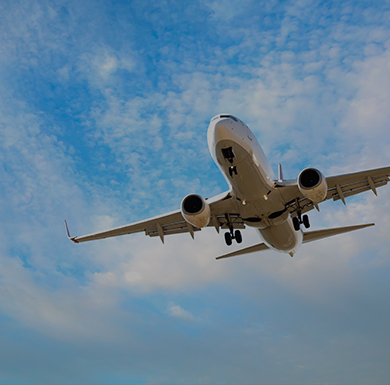
Would you like a release from your FAA Special Issuance for substance dependence? More importantly, would you like to stop with random drug and alcohol monitoring? While the FAA is hesitant to release airmen from a Special Issuance when they consider the airman to have a specifically disqualifying history of regulatory substance dependence, we believe the medical certification standards found in the Federal Aviation Regulations (FARs) provide a unique opportunity for certain airmen to request a release from FAA Special Issuance for substance dependence.
Federal Aviation Regulations at Issue
Under 14 C.F.R. §§ 67.107(a)(4), 67.207(a)(4), and 67.307(a)(4), the FARs state that the applicant shall have no established medical history or clinical diagnosis of…“substance dependence, except where there is established clinical evidence, satisfactory to the Federal Air Surgeon, of recover, including sustained total abstinence from the substance(s) for not less than the preceding 2 years.”
FAR Exception to Substance Dependence Disqualification
As you can see, there is a two-pronged exception to the definition of substance dependence. Even if an airman had a history that would trigger a concern for regulatory substance dependence, that history cannot be disqualifying if the airman has demonstrated the following:
1.) recovery to the satisfaction of the Federal Air Surgeon, and
2.) total abstinence for at least two preceding years.
Special Issuance for Substance Dependence
Typically, if the FAA disqualifies an applicant due to an alleged history of regulatory substance dependence, the FAA will require the individual to go through the HIMS program to demonstrate recovery satisfactory to the Federal Air Surgeon. Once in satisfactory recovery and having demonstrated ongoing abstinence through the random monitoring of a HIMS AME, the FAA will likely provide the applicant with an Authorization for the Special Issuance of an Airman Medical Certificate. While this will get the applicant back into the cockpit with a valid medical, there are several strings attached vis-à-vis the Special Issuance – the most prominent of which is the requirement that the individual continue monitoring with a HIMS AME for the duration of medical certification.
Application of FARs to Special Issuance Requirements and Conditions
We believe that an argument exists under the FARs for certain airmen to request a release from FAA Special Issuance for substance dependence where the airman can meet the two-pronged exception in the FARs. This argument is supported, in theory, by the fact that in order to obtain a Special Issuance, the FAA requires the applicant to prove that he/she is in recovery satisfactory to the Federal Air Surgeon, as well as to engage in ongoing monitoring with a HIMS Aviation Medical Examiner (AME).
It stands to reason that if the airman was placed on a Special Issuance, he/she has already demonstrated recovery satisfactory to the Federal Air Surgeon – the first prong of the exception to substance dependence disqualification under the FARs. Likewise, once the airman has successfully remained on the Special Issuance for at least two years (during which he/she will be subject to random monitoring by a HIMS AME), it further stands to reason that he/she has demonstrated sustained total abstinence from the substance for no less than the preceding 2 years – the second prong of the exception to substance dependence.
Once the two prongs of the FAR exception to substance dependence are met through the applicant’s adherence to a Special Issuance, we believe that the applicant’s previously disqualifying substance dependence history should no longer disqualify him/her under the FARs. Thus, the need for the FAA to follow the airman on a Special Issuance is no longer necessary or appropriate.
NTSB Litigation
In order to qualify for a release from FAA Special Issuance for substance dependence, an airman might be required to litigate his/her eligibility for unrestricted medical certification before the National Transportation Safety Board (NTSB). In those circumstances, after successfully completing at least two years on a Special Issuance, if the FAA is unwilling to release the airman from the Special Issuance, the airman could petition the NTSB for review of the denial of his/her application.
At the NTSB, the airman would have the burden of proof to establish that the FAA continues to erroneously deny his/her application due to a disqualifying history of regulatory substance dependence despite meeting the two-pronged exception in the FARs. The success of this argument will hinge on the applicant having successfully completed the FAA’s HIMS program to establish recovery, as well as obtaining two-plus years of monitoring. Naturally, each applicant’s unique history will heavily factor in the success of the argument to be made for the release from FAA Special Issuance for substance dependence.
If you believe that you might be a candidate to request a release from a FAA Special Issuance for substance dependence because you can satisfy the two-pronged exception in the regulation, please contact The Ison Law Firm Aviation Lawyers to consult on this opportunity.
Contact the Aviation Lawyers from The Ison Law Firm Aviation Lawyers for Help Today
You need both a pilot and a lawyer on your side for your aviation law needs. Don’t hesitate to contact our team from The Ison Law Firm Aviation Lawyers to schedule a confidential consultation with an experienced aviation lawyer today.
We’re pilots representing pilots. The Ison Law Firm Aviation Lawyers offers FAA enforcement defense and medical certification representation worldwide!
The Ison Law Firm Aviation Lawyers
Phone: Toll-Free 855-322-1215
Office Hours: Mon – Thu, 9:00 AM to 5:00 PM
Fri, 9:00 AM to 12:00 PM
Disclaimer: Messages left for attorneys after these business hours will be addressed the following business day, during business hours.

